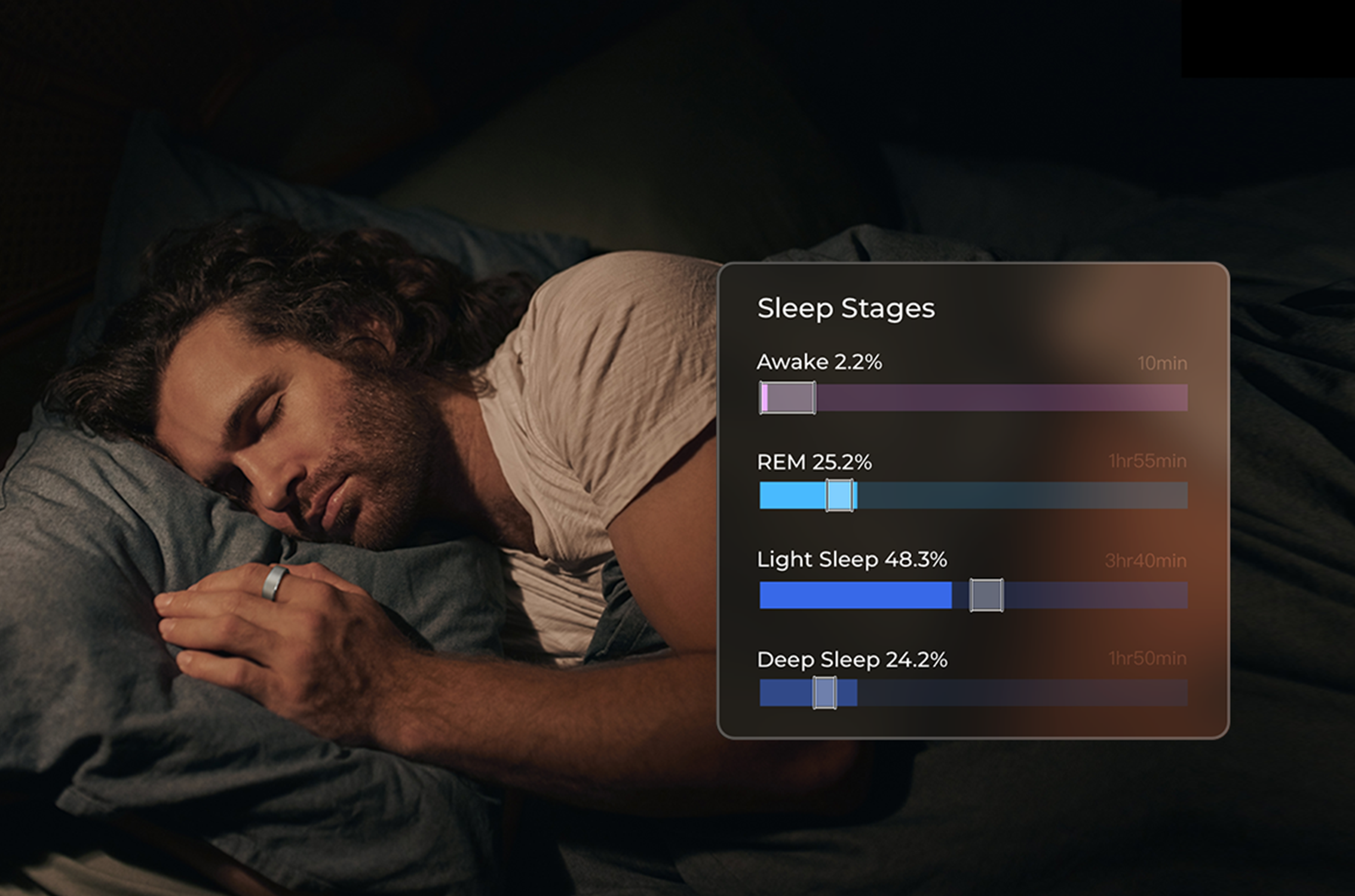自2010年代以來,智能可穿戴設備的市場不斷發展,從而產生了各種類型的產品,例如智能手錶,健身樂隊,智能眼鏡等。這些設備在健康管理,智能家庭控制,娛樂和其他領域中起著重要作用。目前,智能手錶是市場上最主流的可穿戴設備。但是,隨著芯片和傳感器技術方面的進步,較小的設備(如智能環)正在出現。這些環提供了與智能手錶相似的功能。討論將重點關注智能手錶和智能戒指的優勢和劣勢,以幫助讀者選擇最適合其需求的可穿戴設備。
定位和用途
智能手錶的定位:
智能手錶位於傳統手錶和智能手機之間。它們不僅用作時計,而且提供一些溝通功能。通過應用程序,它們可以提供天氣預報,地圖導航,音樂播放等等,在各種情況下都使它們多才多藝。

智能戒指的定位:
智能戒指更類似於珠寶,專注於數據收集和分析。他們在沒有屏幕或通知的情況下悄悄監視身體和活動數據,類似於常規環,因此看起來更謹慎。
用途:
智能戒指和智能手錶都可以用於心率監測,血氧水平跟踪,睡眠跟踪,步驟計數和活動水平監測。這些功能可幫助用戶監控其健康,設定健身目標並改善其生活質量。但是,由於形式和定位的差異,存在明顯的功能差異,將在下面詳細介紹。
特徵
智能手錶:
一些智能手錶配備了天線和GPS芯片,即使沒有智能手機,也可以進行通信,導航,定位和活動跟踪。由於它們的尺寸足夠大,它們還帶有屏幕,因此用戶可以查看數據,接收和回复消息。
智能戒指:
智能環缺少屏幕,並且受其小尺寸的限制,不適合實施GP,並且相互作用將是強大的功能實現。相反,他們依靠低功率傳感器和藍牙模塊,在功耗和電池壽命方面具有重要優勢。大多數智能戒指可以單一收費持續5-7天,而將來的模型如 RingConn 可以實現超過十天的電池壽命。相比之下,智能手錶通常需要每1-2天就每1-2天進行一次充電。
健康特徵: 智能環可以收集更精確的生物學數據,例如心率,血壓和血氧水平,從而使其在健康監測方面出色。例如,智能戒指的Evie品牌考慮到了女性的健康。
睡眠分析: 對於睡眠分析,智能戒指是更好的選擇,因為它們在睡覺時不那麼笨重,更舒適。它們的較長電池壽命可以連續磨損,而智能手錶通常需要在晚上充電。
Spotrs:大多數智能手錶都配備了GPS,使它們能夠無需手機跟踪鍛煉數據。 Smart Rings缺乏內置的GP,並且必須依靠手機的GP來跟踪諸如跑步的活動。
舒適和外觀: 智能手錶在視覺上更為突出,而智能戒指則更加微妙和謹慎。智能戒指更輕,更舒適地連續磨損,包括睡眠期間。
尺寸選項: 智能手錶提供可調節的皮帶,使其適合更廣泛的手腕尺寸。智能環有各種固定尺寸,因此找到完美的合身至關重要。例如, RingConn 提供一個免費的尺寸套件,以幫助用戶在訂購前找到完美的合適套件。
數據收集和分析
數據收集:
與智能手錶相比,智能戒指的移動率更低,對皮膚的貼合性更高,從而使它們能夠收集更準確的生物識別數據。手指紙漿區域具有更豐富的毛細血管,可以收集更多詳細的數據。戴在手腕上的智能手錶可能會移動更多,除非擰緊錶帶,否則降低了數據準確性,這可能會感到不舒服。
數據分析:
雖然大多數智能手錶都提供數據,但智能戒指像OURA和 RingConn 不僅提供數據,而且還提供基於該數據的健康建議。這種方法通過指導用戶如何改善其健康和睡眠質量來增加價值。
誰應該選擇智能手錶?
經常跑步,鍛煉,游泳或從事戶外活動並需要接收和響應消息的健身愛好者將從智能手錶中受益。這些設備提供了更好的交互性,更健壯的活動跟踪,並且可以在沒有智能手機的情況下運行。他們還提供了其他功能,例如天氣預報,地圖導航和音樂播放,使其非常適合時尚意識的健身愛好者。
推薦品牌:
- 蘋果和三星:具有龐大用戶群和全球認可的領先品牌,非常適合那些尋求時尚,高質量設備的人。
- Garmin: 專門從事智能手錶,具有較強的電池壽命,並且在運動和戶外環境中表現出色。
誰應該選擇智能戒指?
如果您希望使用更安靜,侵入性較低的設備,專注於健康和睡眠監測,那麼智能環是更好的選擇。智能戒指在連續健康數據跟踪中表現出色,並提供詳細的健康和睡眠分析報告,有時提供專業的健康建議。它們的形狀,重量和電池壽命優勢使其適合24小時的磨損。推薦品牌:
- RingConn:以睡眠和健康管理功能而聞名,通過軟件不斷通過新功能進行更新。它的價格為279美元,不需要應用程序訂閱費。由鈦合金製成,重量僅為3-5G,電池壽命為7天,IP68防水性等級。
- 烏拉:提供與 RingConn 並且是更知名的。價格從$ 299到$ 349不等,額外的5.99美元應用程序訂閱費。
總之,當在智能手錶和智能戒指之間進行選擇時,請考慮您的個人喜好,佩戴習慣和特定需求。確定您是要改善睡眠和健康的設備還是跟踪運動數據的設備。選擇適合您預算的產品,並確保如果您選擇智能戒指,則可以找到舒適磨損的理想尺寸。




留言
此網站已受到 hCaptcha 保護,且適用 hCaptcha 隱私政策以及服務條款。